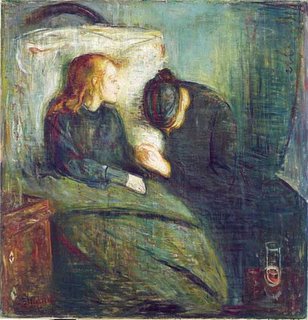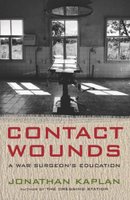You got wires going in
You got wires coming out of your skin
You got tears making tracks
I've got tears that are scared of the facts
Running down corridors, through automatic doors
Got to get to you, got to see this through
I see hope is here in a plastic box
I've seen Christmas lights reflect in your eyes
You got wires going in
You got wires coming out of your skin
There's dry blood on your wrist
Your dry blood on my fingertip
Running down corridors, through automatic doors
Got to get to you, got to see this through
First night of your life, curled up on your own
Looking at you now you would never know
I see it in your eyes; I see it in your eyes
You'll be alright
I see it in your eyes; I see it in your eyes
You'll be alright
All right
Running down corridors, through automatic doors
Got to get to you, got to see this through
I see hope is here in a plastic box
I've seen Christmas lights reflect in your eyes
Running down corridors, through automatic doors
Got to get to you, got to see this through
First night of your life, curled up on your own
Looking at you now you would never know

You got wires coming out of your skin
You got tears making tracks
I've got tears that are scared of the facts
Running down corridors, through automatic doors
Got to get to you, got to see this through
I see hope is here in a plastic box
I've seen Christmas lights reflect in your eyes
You got wires going in
You got wires coming out of your skin
There's dry blood on your wrist
Your dry blood on my fingertip
Running down corridors, through automatic doors
Got to get to you, got to see this through
First night of your life, curled up on your own
Looking at you now you would never know
I see it in your eyes; I see it in your eyes
You'll be alright
I see it in your eyes; I see it in your eyes
You'll be alright
All right
Running down corridors, through automatic doors
Got to get to you, got to see this through
I see hope is here in a plastic box
I've seen Christmas lights reflect in your eyes
Running down corridors, through automatic doors
Got to get to you, got to see this through
First night of your life, curled up on your own
Looking at you now you would never know

I saw another significant case today: a thirteen year-old girl who presented acutely with Diabetic Ketoacidosis. This is an acute presentation of diabetes, whereby the body has begun to metabolise fat and protein, as in starvation. Patients complain of thirst and frequent passing of urine, and smell of pear drops, lose much weight and present with collapse or coma.
After suffering symptoms for only a few days, and having initially put the symptoms down to a urinary tract infection, the girl ended up in A&E, where she was transferred to the Paediatric Intensive Care Unit, where she spent two weeks in a coma. When she came round she was agitated, and thus sedated. She has neurological injury from the high pH (caused by the acidic ketone bodies produced) which has damaged her brain.
Dealing with loss is hard enough, but it seems so unfair when it affects a child, especially in such a dramatic way. I found it difficult to detach myself from the emotion surrounding the issue, and think about the practical multi-disciplinary approach that I ought to be considering. I do hope, like in the song, the girl will be alright.
After suffering symptoms for only a few days, and having initially put the symptoms down to a urinary tract infection, the girl ended up in A&E, where she was transferred to the Paediatric Intensive Care Unit, where she spent two weeks in a coma. When she came round she was agitated, and thus sedated. She has neurological injury from the high pH (caused by the acidic ketone bodies produced) which has damaged her brain.
Dealing with loss is hard enough, but it seems so unfair when it affects a child, especially in such a dramatic way. I found it difficult to detach myself from the emotion surrounding the issue, and think about the practical multi-disciplinary approach that I ought to be considering. I do hope, like in the song, the girl will be alright.



